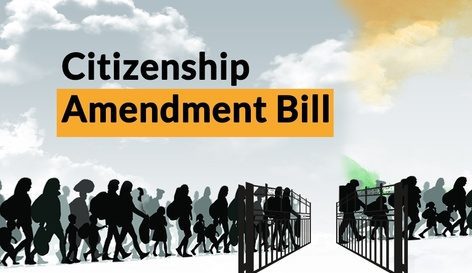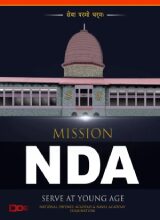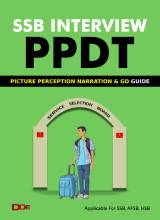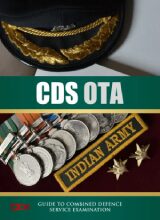Citizenship Amendment Bill 2019 – All You Need To Know
The Citizenship Amendment Bill 2019 or CAB, which grants Indian citizenship to the non-Muslims of Afghanistan, Pakistan and Bangladesh, was passed by the Rajya Sabha on Wednesday. The Citizenship (Amendment) Bill will now go to the President for his assent.
The Citizenship (Amendment) Bill voting in Rajya Sabha was taken up after six hours of debate on the legislation. Rajya Sabha Chairman and Vice President Venkaiah Naidu had allotted the six-hour time to the MPs to discuss the Indian citizenship bill.
Besides the Bhartiya Janata Party (BJP), the CAB was supported by JD(U), SAD, AIADMK, BJD, TDP and YSR-Congress. The Shiv Sena did not participate in the voting. The citizenship bill was on Monday passed by the Lok Sabha with a majority of 311 votes against 80.
The Citizenship Act,1955 was a milestone in regulating the migration levels, entry and exit of foreigners in India and keeping a constant check on it.
Its history is as important as its future impacts on the nation. Here is the Bill’s history, amendments, and controversies:
What is the Citizenship Act, 1955?
The Citizenship Act, 1955, was enacted for the “acquisition and determination of Indian citizenship”.
Under this, citizenship was granted to anyone who was born in the country or was born to Indian parents or has resided in the country for a period of time. ‘Illegal migrants’ were the ones who have entered the nation with no proper passport or documents, or, have exceeded the time of stay specified in their documents.
An individual who is found to be an ‘illegal migrant’ will be tried under the Foreigners Act, 1946 and the Passport (Entry into India) Act, 1920, and will be either deported or jailed.
STRUGGLING TO GET SCREENED IN? GET
RECOMMENDED BY EX SSB PRESIDENT
What are the requirements for an immigrant to get citizenship in India?
According to Section 2(1)(b) of the Citizenship Act, 1955, citizenship can be acquired by birth in India, by descent, through registration, by naturalisation (extended residence in India), and by incorporation of the territory into India.
Who gets the Indian Citizenship?
The Citizenship (Amendment) Bill proposes to grant citizenship to the non-Muslims Hindus, Sikhs, Christians, Buddhist, Jains and Parsis — from Afghanistan, Pakistan and Bangladesh who arrived in India before December 31, 2014.
In other words, the CAB paves way for Indian citizenship to lakhs of immigrants, who identify themselves with any of the given religions, even if they lacked any document to prove their residency. It also means that any immigrant who does not belong to the said communities would not be eligible for Indian citizenship.
ALSO READ: Journey Of Two Friends From Nursery To Army Officer
Also, as per the Citizenship (Amendment) Bill, any illegal immigrant from Afghanistan, Pakistan and Bangladesh who belongs to these said communities will not be deported or imprisoned if they are not carrying any valid documents for their residency in India.
Earlier, the duration of the immigrants’ residency was 11 years. The amended bill has reduced it to five years. This means that immigrants from the three countries and from the mentioned religions, who have entered India before December 31, 2014, would not be treated as illegal immigrants.
Why are some northeast states opposing the Bill?
The CAB has sparked resentment in the northeast as it is feared that granting citizenship to foreign refugees will undermine the ethnic communities living in these regions. There are indications that the government is working out a compromise. Formulations like provision of citizenship not leading to residency status in the smaller north-east states were discussed.
Why is there such a hue and cry?
The CAB ringfences Muslim identity by declaring India a welcome refuge to all other religious communities. It seeks to legally establish Muslims as second-class citizens of India by providing preferential treatment to other groups. This violates the Constitution’s Article 14, the fundamental right to equality to all persons. This basic structure of the Constitution cannot be reshaped by any Parliament.
What are the other contradictions or controversies?
It is unclear as to why the Bill exempts certain neighbouring countries since the Bill is said to aim at providing citizenship to oppressed religious minorities surrounding the country.
The Bill also has no mention of the guidance on the nature of these laws under which the Centre will have to notify, which is crucial to set limits on the authority’s powers and to avoid any arbitrariness in the exercise of powers as stated by the Supreme Court. This makes the passing of the Bill provide the Centre with powers that may go beyond the permissible limits of valid delegation.
ALSO READ: 10 Tips To Crack AFCAT Easily
Union Home Minister has co-related NRC with the Bill saying that whatever error that was missed out in the NRC, the Citizenship Amendment shall rectify.
Prime Minister Narendra Modi said that this Bill is for righting the wrongs of history by granting refuge to the sons and daughters of “Ma Bharti”, who were left stranded by Partition.
The Bill has also triggered massive uproar around the country as there is expected to be a bulky change in the demographics of the states that border the neighbouring countries.This reduces the opportunities and fear of losing their indigenous civilizations, tradition, and culture.
CRACK CDS IN YOUR FIRST ATTEMPT
HIGHEST SUCCESS RATE
Start your SSB preparations with these specially curated ebooks.
Stage 1 SSB – SSB Oir ebook
SSB Psychology Test – Click Here
SSB Group Tasks – Click Here
Thematic Apperception Test – Click Here
Situation Reaction Test – Click Here
To Download Free SSB Material – Click Here









 Buy Now on Amazon
Buy Now on Amazon
